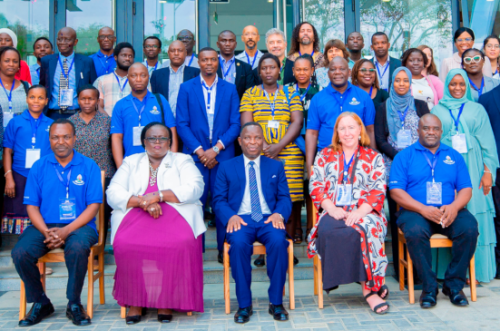CoHU, global scholars interrogate chronic conditions and suffering in Africa
By Dotto Kuhenga, Communication and Marketing Office,
The University of Dar es Salaam College of Humanities (CoHU), in collaboration with the Consortium of Humanities Centres and Institutes (CHCI), has held the eminent Global Humanities Institute 2022 to discuss chronic conditions and sufferings in Africa.
The University of Dar es Salaam Vice Chancellor, Professor William Anangisye, in his opening address, commended the efforts to convene such a significant conference at the University of Dar es Salaam, from 1 to 6 August, 2022, and applauded its thematic areas for constituting “the bedrock of the intellectual architecture of the Institute”.
“Methodological issues for interrogating chronic conditions constitute a timely sub-theme. I am pleased to note that one of your strategic interests is to explore opportunities for decolonizing methodologies in the study of chronic conditions”, said Prof. Anangisye.
Prof. Anangisye commended the conference’s plan of interrogating conditions of health and medicine in Africa and beyond, especially comparative studies of suffering in and out of Africa; and discussing of violence, suffering and inequalities, which is “a critical area of scholarly inquiry because these vices have remained endemic to humanity throughout its existence”.
In the same vein, the Principal of the College of Humanities, Dr. Rose Upor said that the selection of participants to attend this Institute, whose theme is Chronic Conditions: Childhood and Social Suffering in Global Africa, considered its importance and rewarding experience.
“The senior researchers were crucial in picking candidates that fit the theme of the Institute. We hope that their participation in this institute shall propel their research careers further to become global humanists”, said Dr. Upor, who is also the Institute’s co-principal investigator representing the University of Dar es Salaam.
Dr. Upor said that holding the institute as well as the existing partnerships were an indication that the fear, sometimes mentioned in discussing the opportunities for the African Humanities and that the discipline may be diminishing in interest, was clearly eliminated.
Also, another institute’s project co-principal investigator, Dr. Oswald Masebo, who is a senior lecturer at the UDSM History department, said that the overarching goal of the conference, was to offer new ways of thinking about the historical, cultural, spatial, and structural processes that have given rise to chronic health conditions among African and African-descended youth and children.
“Through a focus on communities that share African roots, participants will develop and share research that traces how legacies of slavery, colonialism, and segregation have rendered young Black bodies particularly vulnerable to misapprehension, oppression, and exploitation in medicine, public health, and development initiatives”, Dr. Masebo said.
He said that, the conference also attempted to address the ways in which anti-Black racism and symbolic violence combine with structural inequalities to predispose children and youth to embodied experiences of chronic affliction, including most recently those leading to and resulting from Covid-19 infection.
The institute was attended by more than 80 scholars from various international higher education institutions namely University of Dar es Salaam in Tanzania, University of Kansas in the United States of America, University of Cheikh Anta Diop in Senegal, the Federal University of Bahia in Brazil and others.


